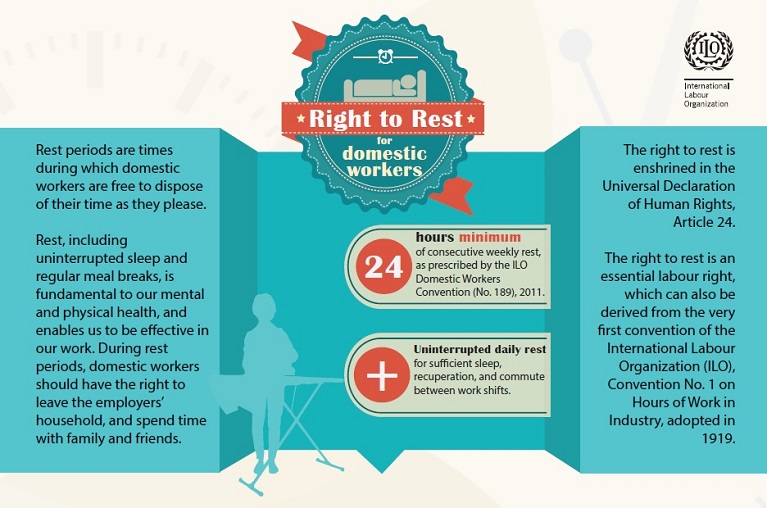Policy resource pages by theme
Working time

Detailed infographic on the right to rest for domestic workers
Although the eight-hour working day is now an internationally accepted legal norm, domestic workers are most often exempted from this standard, and their working hours are among the longest and most unpredictable in the world.
Regulating working time is not only just but also wise. Long and unpredictable working hours impose a high cost on workers’ health and well-being, impacting their ability to provide quality service to their employers. ILO Convention 189 calls on Member States to ensure working time protections equal to those enjoyed by other workers. To help constituents implement these standards, the ILO has compiled best policies and practice to protect domestic workers from excessive working hours, insufficient rest and inadequate payment for actual hours worked.
Key resources:
- Working around the clock? A manual for trainers to help live-in domestic workers count their working time, Guide
- Working hours in domestic work, Domestic Work Policy Brief No. 2
- Working time of live-in domestic workers, Domestic Work Policy Brief No. 7
- The right to rest for domestic workers – setting a floor, Fact sheet
- The legal regulation of working time in domestic work, Working Paper